Act I, Scene i
Dead March. Enter the funeral of King Henry the Fifth, attended by the Duke of Bedford, Regent of France; the Duke of Gloucester, Protector; the Duke of Exeter, the Earl of Warwick, the Bishop of Winchester, and the Duke of Somerset, [heralds, etc]
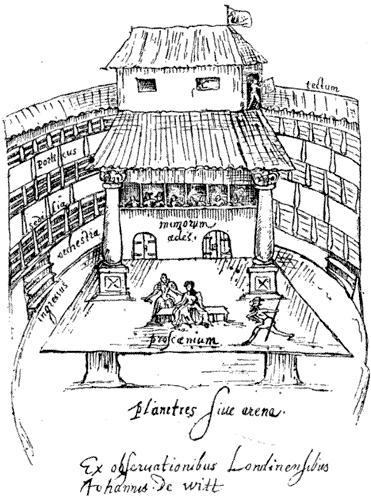 Above is a sketch of a playhouse during the English Renaissance. The
theaters were circular and there was only thatched roofing above the
seating area. (The playhouse was set up kind of like a colluseum). The
rest of the theater was not sheltered, nor was most of the stage. Groundlings, would crowd before the stage and stand during the duration of the piece. (Richer audience members would sit in the balcony rings). Plays were performed during day, using the sun for lighting. Nighttime theater did not exist in the common playhouses for it would be too expensive and dangerous to keep torches and candles lit. The stage jutted out into the house and usually included a roofed balcony, and two doors, one for entrances and one for exists, both going into the tiring house which is just another word for backstage (tiring coming from attiring, to get dressed-- hence, where the actors would change their costumes). As one can guess from the sparsity upon
the stage, no sets and few props such as tables or chairs were used.
This type of stage allows for the audience to see the actors from a
panoramic view, and put most of the focus on the lines and the actors
saying them. The black drapery hung during tragedies would be off of the awning above the stage. 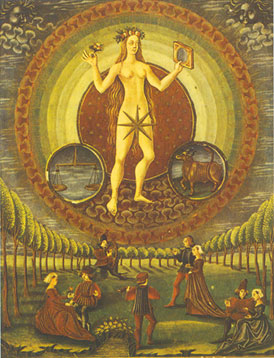 Above is a Renaissance painting depicting people living their lives under the wheel of fate and fortune. Below is a portrait of Henry V. 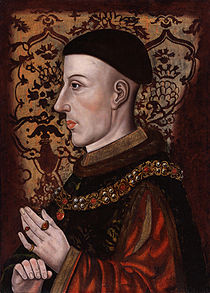 |
BEDFORD:
|
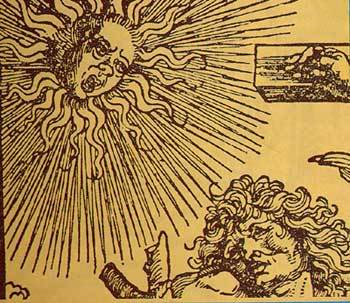
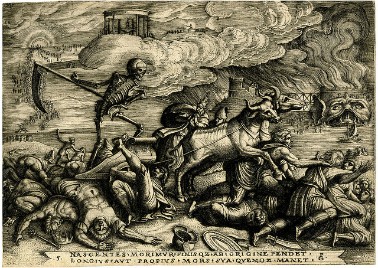 This is a 16th-century etching of an astrologer physically manipulating the planets to his will. Exeter here implies that someone is to blame; it is not just the vast, incomprehensible plans of the cosmos but someone who can read and control the motions of the planets, and thus thwart and corrupt the fates of men. 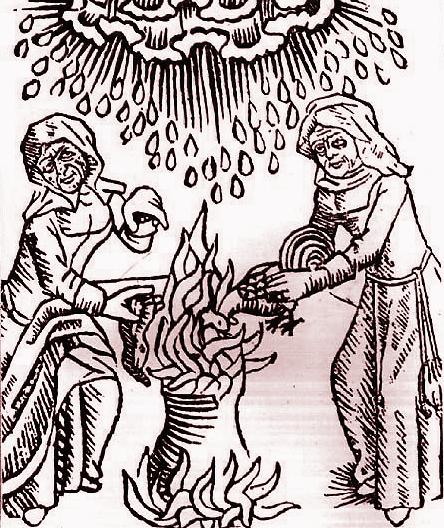 |
GLOUCESTER:
EXETER:
|


